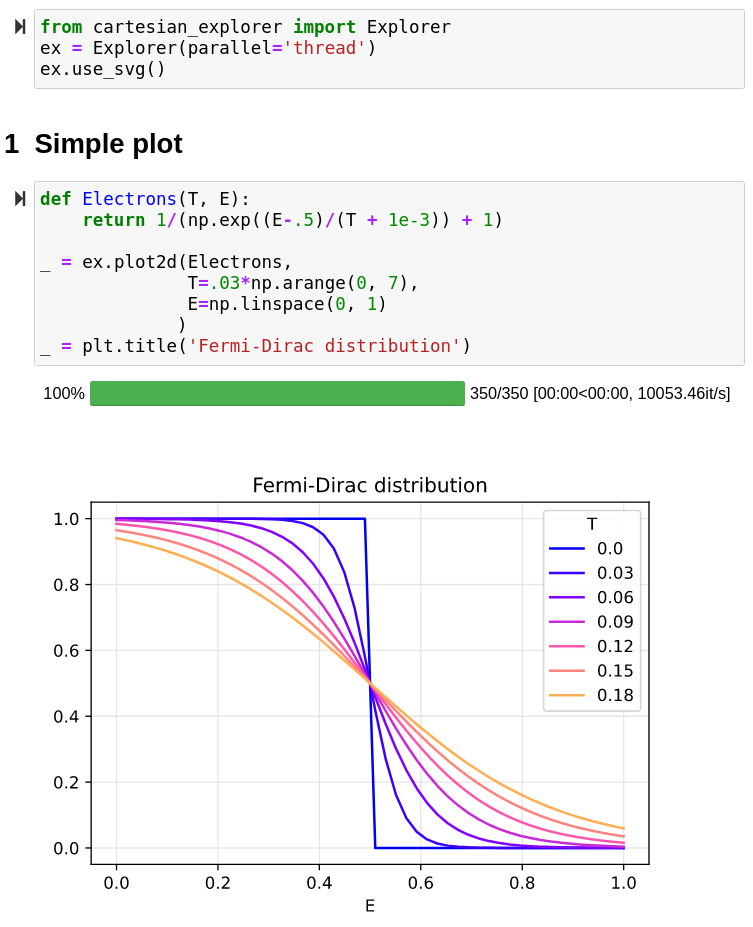
A handy tool to map functions over their domains.
Cartesian explorer has following layers:
- an extension over matplotlib, such that you can plot multi-dimensional data.
- ability to define a “computational graph” in terms of variables. Basically, If you set a function def foo(bar), and do not provide a value for bar then caex will look for another function called “bar” to get the value for it from other provided variables.
- finally, there is a handy utility to parallelize all the calculations.
Works:
- Map over cartesian product of arguments: pass arrays of values for function argument
- Built-in caching
- Handy plotting utilities
- Resolving dependencies between functions that require and provide variables
Map
from cartesian_explorer import Explorer
explorer = Explorer()
def my_function(x, y):
return x+y
data = explorer.map(my_function, x=range(5), y=range(3))
print(data)
assert data.shape == (5, 3)
assert data[1, 2] == my_function(1, 2)Cache
from cartesian_explorer import Explorer
explorer = Explorer()
mock = MagicMock()
my_function = mock.my_function
wrapped = explorer.cache_function(my_function)
wrapped(a=1, b=2)
wrapped(a=1, b=2)
my_function.assert_called_once_with(a=1, b=2)- [ ]
with caex.no_cache():...to disable cache. Or a keyword argument - [ ] If an optional argument is provided by some provider that depends on other variable, call it in case the latter variable is provided
- [ ] If distribution var is 1-d then it's not used, but the latest dimension is used as distribution var
- [ ] Interpolation, extrapolation
- [ ] Vectorized providers
- [x] Plot distribution props along additional distribution var
